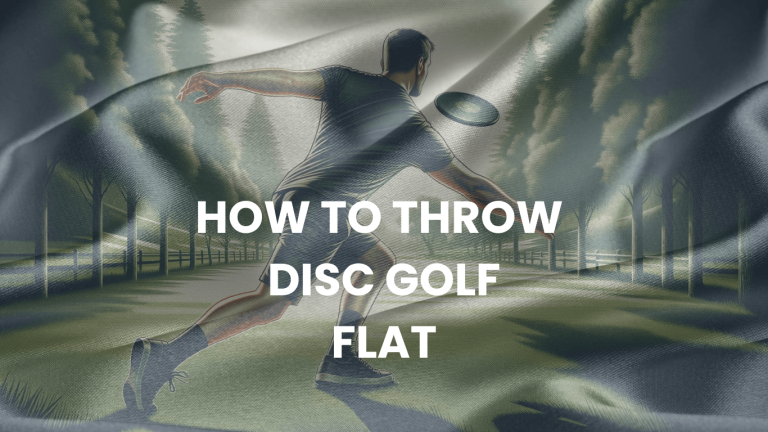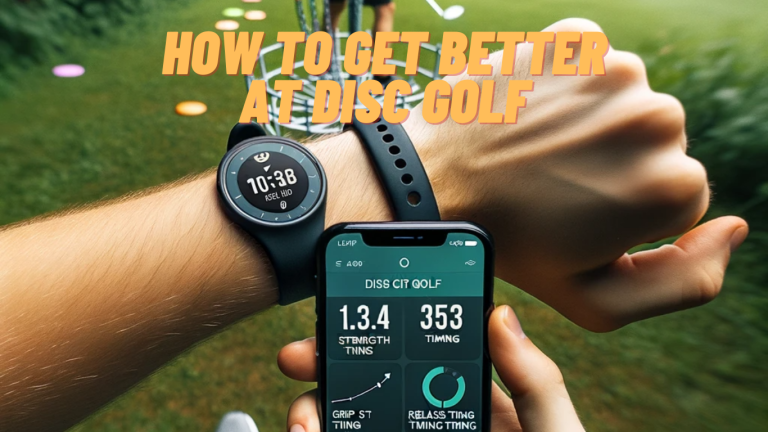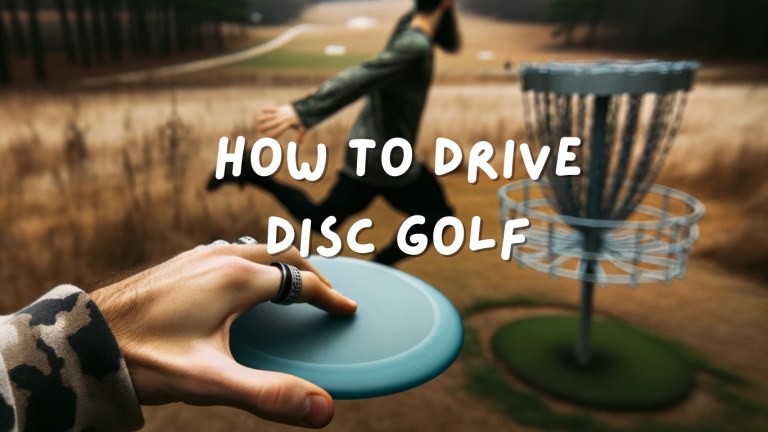Is Disc Golf a Sport That Everyone Can Play? Fun for All Ages & Abilities
Discover disc golf, a low-cost, accessible sport perfect for families & individuals of all skill levels. Let me preface this by saying I’m not exactly what you’d call a sporty person. But recently, I found myself captivated by the sight of a group of friends having a blast throwing frisbees around a park. Intrigued, I walked over and discovered the world of disc golf. Now, I’m not talking about your average game of catch with a plastic disc. Disc golf is a surprisingly complex and engaging sport that combines the strategic elements of traditional golf with the casual fun of throwing a frisbee with friends.
Is Disc Golf a Sport That Everyone Can Play?
Ever feel like getting some exercise but traditional sports seem too intense or expensive? Well, have you heard of disc golf? This unique blend of frisbee throwing and strategic gameplay might just be the perfect outdoor activity for you, regardless of your age, fitness level, or athletic background.
In this article, we’ll delve into the world of disc golf, exploring its accessibility, benefits, and how anyone can pick it up and start enjoying this fun and social sport. So, whether you’re a seasoned athlete or simply looking for a new way to spend your free time outdoors, disc golf is definitely worth a try!
Unveiling the Fun: Disc Golf Explained
Remember that time you saw a group of people throwing frisbees in the park, but it looked way more organized and competitive than just casual catching? That, my friends, is the world of disc golf!
Similarities to Traditional Golf:
Disc golf borrows its basic concept from its traditional counterpart. We’re talking about navigating a course with designated “holes” and aiming to get your disc (instead of a ball) into a basket (instead of a hole) in the least number of throws. Sounds familiar, right?
Unique Aspects of Disc Golf:
But here’s where disc golf takes a unique turn. Unlike its pricier cousin, disc golf is incredibly accessible and affordable. You only need a few discs to get started, and courses are often free to play in public parks. This makes it a fantastic option for individuals and families seeking a fun outdoor activity without breaking the bank.
Benefits of Disc Golf:
Now, let’s dive into the exciting world of benefits that disc golf offers:
Physical Benefits:
Get ready to break a sweat! Disc golf involves walking through varied terrain, throwing discs with different weights and distances, and navigating obstacles. This translates to improved cardiovascular health, increased coordination, and overall physical fitness. It’s a fantastic way to get some exercise disguised as a fun game.
Mental Benefits:
But disc golf isn’t just about physical activity. It also engages your mind in several ways. The need to focus on your throws, strategize for different situations, and navigate the course keeps your mind sharp and reduces stress. Plus, the sense of accomplishment from sinking a challenging putt provides a great mental boost.
Social Benefits:
Disc golf is a fantastic social activity! Whether you play with friends, family, or join a local club, it provides a perfect opportunity to connect with others, build camaraderie, and foster teamwork. This aspect is especially appealing for those seeking an active and social way to spend their free time.
So, is disc golf a sport that everyone can play? Absolutely! With its accessibility, affordability, and diverse benefits, disc golf offers a unique and enjoyable experience for people of all ages, fitness levels, and backgrounds. So, grab your discs, head to your local course, and get ready to discover a new favorite sport!
Gearing Up for Disc Golf: Your Essential Guide
So, you’re ready to ditch the couch and embrace the world of disc golf? Fantastic! But before you head out to the course, let’s talk about the essentials you’ll need.
Disc Arsenal:
Think of discs as your golf clubs, but in frisbee form! While there are many types available, you can get started with three basic disc types:
Drivers:
These are your long-distance throwers, designed to soar through the air and cover maximum ground.
Mid-ranges:
Consider these your workhorses, offering a balance between accuracy and distance, ideal for navigating tight fairways.
Putters:
As the name suggests, these are for those close-up shots and putting attempts. They excel in offering precise control and a smooth release.
Remember, you don’t need a whole collection to start. A driver, mid-range, and putter are a great starter pack. You can always expand your disc arsenal as you progress and discover your preferences.
Finding Your Course:
Ready to explore the playing field? Websites like the Professional Disc Golf Association (PDGA) offer a fantastic resource for locating courses near you. You can even filter them by difficulty level, making it easy to find one that suits your skill level.
You May Also Like To See: What Are Flight Numbers what do they mean and a better approach?
Mastering the Throw:
Now, let’s talk about technique! Throwing a disc smoothly and accurately requires proper grip and basic mechanics. Here’s a quick rundown:
Grip: Imagine holding a handshake with the disc, using your thumb and several fingers around the rim for stability.
Throwing Techniques: You’ll primarily use two throws: backhand and forehand. The backhand is a natural starting point, similar to throwing a frisbee.
Aiming and Follow Through: Line up your target, focus on your aim, and follow through with your throw for optimal control and distance.
Playing the Game:
The objective of disc golf is simple: get your disc in the basket (similar to a hole in traditional golf) in the least number of throws. Each hole has a designated starting point (tee), a fairway (playing area), and a basket as the target.
Etiquette and Safety:
Respect is key on the course. Be mindful of other players while throwing and avoid standing in their line of fire. When retrieving your disc, ensure it doesn’t land near bystanders and maintain a safe distance when throwing.
Beyond the Basics:
As you progress, you might delve deeper into the world of disc types, exploring options like distance drivers for even more powerful throws or fairway drivers for greater control and accuracy. Additionally, advanced techniques like hyzer, anhyzer, and rollers can be learned to navigate specific course challenges.
The Disc Golf Community:
The disc golf community is incredibly welcoming and supportive. Many local clubs organize events and tournaments, offering opportunities to connect with fellow players, learn from experienced members, and participate in friendly competition. Online communities also exist, providing a platform to share experiences, ask questions, and stay updated on the exciting world of disc golf.
Conclusion:
So, there you have it! Disc golf offers an exciting blend of affordability, accessibility, and diverse benefits, making it a fantastic option for anyone seeking a fun and rewarding activity. Grab a few discs, find your local course, and get ready to discover a sport that’s both physically and mentally engaging. Who knows, you might just find yourself hooked on the thrill of the chase and the joy of the game!
FAQs:
Q1. Is disc golf expensive?
Answer:
Not at all! Unlike traditional golf, disc golf requires minimal equipment, and many courses are free to play, making it a budget-friendly activity.
Q2. What are the physical benefits of disc golf?
Answer:
Disc golf offers a full-body workout, improving cardiovascular health, coordination, and overall fitness.
Q3. How do I learn more about disc golf?
Answer:
The PDGA website is a great resource to find local courses, learn about disc types, and explore the disc golf community.







